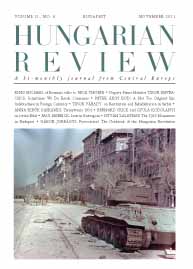Restitution of Hatred or of Mutual Understanding? On the 2011 Serbian Act on Restitution
Restitution of Hatred or of Mutual Understanding? On the 2011 Serbian Act on Restitution
Author(s): Tibor VáradySubject(s): Law, Constitution, Jurisprudence
Published by: BL Nonprofit Kft
Summary/Abstract: My father and I were born in the same house. (Literally, since in our part of the world, giving birth in hospitals became a common practice only later.) Yet, we were not born in the same country. My father was born in the Austro-Hungarian Monarchy, I was born in the Kingdom of Yugoslavia. My family is a Hungarian family. In our town, we lived together with other Hungarians, with Serbs, Germans, Jews, Romas, and some Romanians and Slovaks as well. Some changes in the name of the city took place between the times of our births as well. When my father was born, the name of our city was Nagybecskerek. After World War I, it became Veliki Bečkerek. Becskerek/Bečkerek is a name of uncertain origin. When I was born, the name of the city had a more pronounced Serbian name. It became Petrovgrad – honoring the Serbian King Petar (Peter). In 1941 Petrovgrad was occupied by the Germans. The name of the town became Grossbetschkerek. An inscription on the old city hall stated: Dieses Land war und bleibt immer deutsch. (“This land was, and will always remain German.”) This motto was not really indicative of historic facts, but it was indicative of a momentum. Just like when Ratko Mladić speculated about the borders of a Greater Serbia. He said that these borders will extend over Trieste. A journalist asked why Trieste should be Serbian, and Mladić responded. “Because it was always Serbian.”
Journal: Hungarian Review
- Issue Year: II/2011
- Issue No: 06
- Page Range: 20-27
- Page Count: 8
- Language: English

